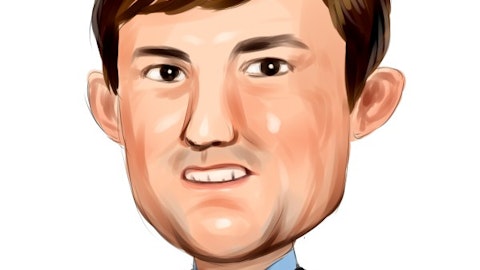The Rockefeller Foundation had its glaring flaws, most notably in its support of German eugenics programs leading up to World War II. This stain on the Foundation’s integrity didn’t stop it from pursuing nobler goals after the depth of Nazi depravity was revealed, and today the Foundation remains one of the most influential nongovernmental organizations in the world, with a multibillion-dollar war chest and a century of experience to draw on.
Are you cured yet?
The first known vaccination took place on May 14, 1796, when English physician Edward Jenner used fluid from a cowpox-infected cow’s udder (ew, gross) to purposely infect an 8-year-old boy. Luckily for Jenner, people then were far less likely to sue for medical malpractice, and he was able to test a smallpox sample on the boy several weeks later. When no smallpox developed, Jenner knew that he had successfully vaccinated his subject against the terrible disease.
Today, most major pharmaceutical companies have large vaccine-manufacturing operations. Thanks to this capacity, several diseases (including smallpox) have been virtually eradicated, and vaccination rates for formerly dangerous communicable ailments approach or exceed 90% in many parts of the world. Vaccination has been one of the great drivers of life-expectancy gain in the centuries following Jenner’s discovery, and although medical science is far from curing everything, we’re a lot closer to a disease-free humanity than we were when infected udders were the best way to stave off sickness.
Apple v. Apple
John, Paul, George, and Ringo of the Beatles founded Apple Corps on May 14, 1968. At the height of their “more-popular-than-Jesus” global music dominance, the Beatles had the enviable problem of simply making too much darn money. Individually, the Beatles would be taxed out the “Hey Jude” by the British government. Collectively, as business owners, they could save enough money to buy Abbey Road, and then some.
However, the Beatles were far better musicians than businessmen. Subsidiaries to make electronics, produce films, and sell retail products were all terrible failures, and outside of the Beatles catalogue (later bought by Michael Jackson), there wasn’t much that anyone wanted to buy. Apple Corps eventually became known primarily as the launchpad for numerous lawsuits, many of which were aimed squarely at Steve Jobs’ Apple Inc. (NASDAQ:AAPL).
Apple v. Apple is now legal shorthand for a long-running series of lawsuits between the two parties, beginning in Apple Inc. (NASDAQ:AAPL)’s (the computer maker) second year of existence and plodding on until 2007. For a while, this meant that Beatlemania never came to iTunes, but after a final agreement in the year of the iPhone’s debut, the two parties patched things up over a reported $100 million settlement from the big Apple to the smaller, British Apple.
The article Two Botched Leveraged Buyouts and the First Modern Philanthropist originally appeared on Fool.com and is written by Alex Planes.
Fool contributor Alex Planes holds no financial position in any company mentioned here. Add him on Google+ or follow him on Twitter @TMFBiggles for more insight into markets, history, and technology.The Motley Fool recommends Apple. The Motley Fool owns shares of Apple.
Copyright © 1995 – 2013 The Motley Fool, LLC. All rights reserved. The Motley Fool has a disclosure policy.


